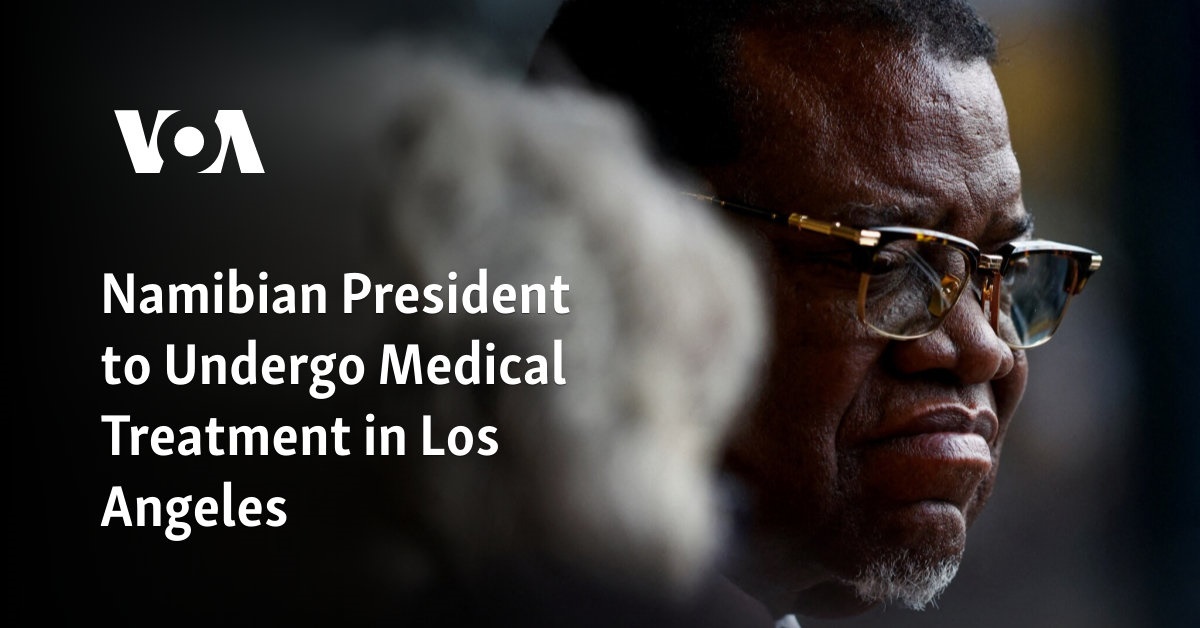Namibian President Hage Geingob is set to undergo medical treatment in the United States after an exam found the possible return of cancerous cells in his body, according to a news release from his office Wednesday.
Having been diagnosed, treated and cleared of prostate cancer, Geingob was again found to have cancerous cells after undergoing colonoscopy, gastroscopy and biopsy procedures earlier this month.
The CEO of the Cancer Association of Namibia, Rolf Hansen, told VOA the president has been open about his cancer diagnosis in the past. He said early detection and treatment played a big role in Geingob’s past treatment and recovery.
“The scope that was done indicates that there might be cancerous cells in the soft tissue, perhaps the gut, the stomach, something like this,” Hansen said. “But until there is a formal prognosis by a doctor that has been publicly released, it’s all speculation.”
Political analyst James Makuwa said Namibians would like to know more about what the latest diagnosis means.
“What are the reasons and motives of the president’s office sharing a diagnosis which has no prognosis?” Makuwa asked. “They are basically putting the country in a state of panic … because you are telling us the person’s diagnosis, but we have no clue what condition he’s in, how he is doing, what is going to happen to him. We have no clue.”
According to the statement issued by the president’s office, Geingob accepted an offer from scientists and doctors in Los Angeles to undergo a novel therapy for the cancerous cells.
Dr. Elizabeth Kamati lauded Geingob’s openness in a country where men are known not to take their health seriously until too late.
“We applaud the president for being very open to us,” she said. “He can encourage other men who are also going through the same disease of cancer, which is somehow taboo in our society, to come out and tell them a diagnosis with cancer is not a death sentence.”
The president has come under harsh criticism in the past for seeking medical treatment abroad. However, Namibian doctors acknowledge that cancer treatments are relatively specialized and that the country does not have the equipment and medical expertise to treat the disease effectively.







